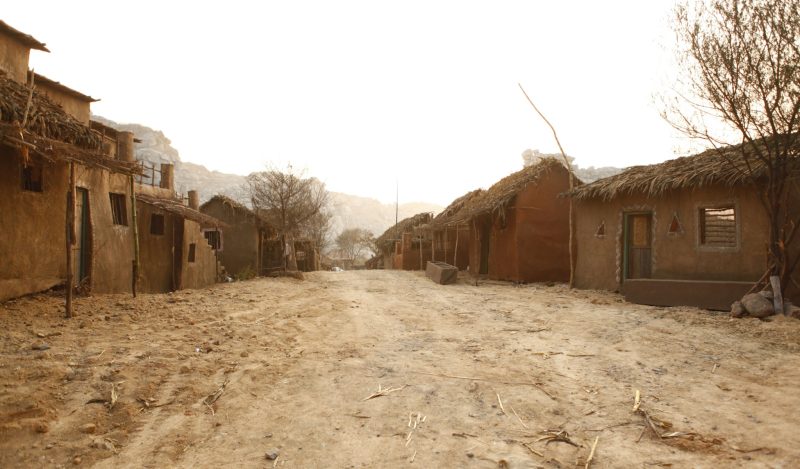At 4 am on Tuesday 9th July in Seville (Spain), I woke up alerted by a text to my phone. “We had a bad night with Hurricane Beryl. Your house still stands and the critters are safe, two big trees down, no electricity, no Internet, and poor phone service.”
My children and I were visiting Andalusia, one of the oldest and most gorgeous European regions, blessed with the best food and the warmest people. This is one of my favorite places on earth, but for now, my family and I are calling South of Houston (Texas, US) home.
I panicked, being instantly seized by maternal instinct. Our entire house is run by electricity. On our return in a few days, there would be no warm food, no milk, no air conditioning, no TV, no running water, no toilet flushing. In town, neither kid activities nor story time at local libraries. These conditions are undoubtedly hard for young children who have only known comfort so far, although hundreds of millions of children are growing up in such circumstances daily.
Then I calmed down. The first thing to do should be thanking God for protecting human lives there, and for our wonderful friends and community.
I understood what happened immediately. Trees have fallen everywhere, taking down most of the grid and affecting more than a million people. It would take a few weeks to fix it. Houston would be first, of course, the crowded and business-minded urban areas will be rightly prioritized and rural areas follow after. After such largesse provided for the solar industry by successive American administrations, why has there been no money to put wires and cables underground in hurricane-prone regions?
We always have a month of canned meat and dry salami, drinking water, olive oil, lard, animal feed (we have some farm animals,) and 750 gallons of water in storage, candles, matches, and flashlights. For emergency situations like a war or a natural disaster. We have a pool conveniently built for Texan summer heat even though the filter won’t work. I can dig a hole in the garden if I want to give the kids some survival training, or I can use the pool water for toilet flushing. Our hens and ducks give us more than enough fresh eggs daily.
But I should have kept a few solar phone chargers and probably some solar panels for our well pump (solely activated by electricity). My husband should have had a better stock of gas to run our generator through the fridge and the two freezers. At least, I can still grill and the kids can help gather dry branches to make a fire and cook camping meals. After all, it is easier to survive without energy in a hot place than in a cold place.
My situation isn’t probably the worst, and I will be able to help some people around me with food and water. I will entertain the kids with games I used to play under the moonlight and the starry sky. However, with little or no gas (petrol) in town, and likely long lines at available stations, I will have to calculate our car trips well.
I told my 7-year-old what happened. He said he would fry eggs on the car and roast marshmallows on sticks. Young children are such marvelous beings. With only their imagination and innocence, they bring wonders to our world. Who knows, we might be lucky enough to catch some fireflies in a jar – I replied, nurturing his excitement. As his mother, I have the duty to minimize his suffering. Nevertheless, I would like to seize this opportunity to give him and his younger sister some duress training on life without fossil fuels – coal, gas, and oil to power modern devices – a bit like how I grew up.
Have the international, national, and non-governmental Net Zero crusaders ever lived a day without using any technology powered or facilitated by fossil fuels and their byproducts?
I would like to invite them to live here with us. I will show them that had I had solar panels on my roof, I would likely be cleaning up all of their dangerous debris around the house. Right now, a Tesla would be of less use than an ox cart in my Texan town.
But life at my homestead after Hurricane Beryl seems rather poetic. Well-prepared, a week or two without electricity might equal an ecological or soul-searching retreat with meditation time, good books on a hammock, bird-watching, simple yet exotic farm-to-table meals, and constellation identification.
For a real experience of a life without fossil fuels, climate leaders and activists should consider signing up for the sustainability internship program offered by Mr Jusper Machogu, a Kenyan farmer who was recently attacked by the BBC for his campaign on X requesting “Fossils Fuels for Africa.” Participants will learn how to grow foods without technologies powered by fossil fuels and live with a minimal impact on nature in rural Kisii.
Ploughing the land with bare hands before planting isn’t fun at all. Watering the crops regularly might well bring people closer to God with spontaneous prayers. Weeding or harvesting by squatting under the sun is tough. Even without factoring in any risk of pests, diseases. and unfavorable weather, what are the chances they would have to get out of poverty and food insecurity without cheap, reliable, abundant, and scalable energy?
Billions of subsistence families are still going through this. Worse, they continue to put their health at risk by cooking with agricultural wastes, wood sticks, and cow dung, while the Western world and their investment funds shamelessly demand poor countries and their populations to adopt intermittent, expensive, and unreliable green energies, instead of supporting fossil fuels (as well as hydropower and nuclear) production and infrastructure.
Secretary-General Antonio Guterres, who repeatedly called to “close the door on fossil fuel era” (on International Clean Energy Day – 26 January 2024), would you live entirely and produce your own foods without fossil fuels?
United Nations Environment Program’s (UNEP) Chief Inger Andersen, who, at the closing of the 28th Climate COP (Dubai, UAE), claimed that “we know the solutions, we know what needs to be done,” would you be able to build a town for your staff without using oil, gas, and their byproducts?
How may we, as voters and taxpayers, demand that decision-makers lead by example, truly adhering to their green agenda first, before they insist that others implement it?
Join the conversation:


Published under a Creative Commons Attribution 4.0 International License
For reprints, please set the canonical link back to the original Brownstone Institute Article and Author.









